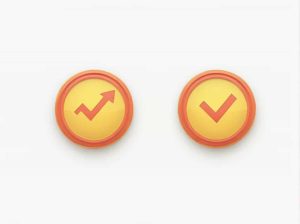Big banks play a crucial role in the global economy but their practices often raise concerns about exploitation unethical behavior and financial manipulation. From hidden fees to risky investments these financial giants have repeatedly prioritized profits over consumers’ best interests.
This topic explores how big banks exploit individuals and businesses the impact of their actions and what consumers can do to protect themselves.
How Big Banks Exploit Consumers
Big banks use various strategies to maximize their profits at the expense of customers. Some of the most common exploitative practices include predatory lending hidden fees market manipulation and unfair account policies.
1. Predatory Lending Practices
One of the most damaging ways big banks exploit consumers is through predatory lending. This involves offering loans with unfair terms that trap borrowers in cycles of debt. Common predatory practices include:
- High-Interest Rates – Many banks charge excessive interest rates especially on credit cards and payday loans.
- Adjustable-Rate Mortgages (ARMs) – These loans start with low-interest rates but later increase dramatically making payments unaffordable.
- Subprime Lending – Banks target low-income individuals with risky loans leading to high default rates.
The 2008 financial crisis was largely driven by reckless lending where banks issued subprime mortgages to borrowers who couldn’t afford them. This led to mass foreclosures and economic collapse while banks received government bailouts.
2. Hidden Fees and Unfair Charges
Many banks charge excessive fees that are often hidden in the fine print. Some of the most common fees include:
- Overdraft Fees – Banks charge customers when their account balance goes negative often leading to a cycle of debt.
- ATM Fees – Consumers are charged high fees for withdrawing money from non-affiliated ATMs.
- Maintenance Fees – Some banks charge monthly fees just for having an account even if the customer rarely uses it.
- Late Payment Fees – Credit card companies charge excessive penalties for late payments sometimes leading to increased interest rates.
These fees disproportionately affect low-income customers making it harder for them to save money or improve their financial situation.
3. Market Manipulation and Unethical Trading
Big banks have been caught manipulating financial markets for profit. Some well-known scandals include:
- LIBOR Scandal – Major banks manipulated the London Interbank Offered Rate (LIBOR) which affected interest rates worldwide.
- Forex Manipulation – Banks were caught rigging foreign exchange rates to maximize profits at the expense of traders and investors.
- High-Frequency Trading (HFT) – Some banks use HFT algorithms to gain an unfair advantage over regular investors in stock markets.
These unethical actions undermine public trust in the financial system and contribute to economic instability.
4. Discriminatory Lending Practices
Big banks have a history of discriminating against minorities and low-income individuals. Some discriminatory practices include:
- Redlining – Refusing to give loans or mortgages to people in predominantly minority neighborhoods.
- Higher Interest Rates for Minorities – Studies have shown that Black and Hispanic borrowers often receive higher interest rates than white borrowers with similar credit histories.
- Loan Denials – Many banks deny loans to qualified minority applicants limiting their ability to buy homes or start businesses.
These discriminatory practices have widened the wealth gap and contributed to economic inequality.
5. Credit Card Traps and Debt Cycles
Credit cards are one of the biggest sources of consumer debt and banks take advantage of this by implementing unfair policies. Some common credit card traps include:
- Minimum Payment Trap – Banks encourage consumers to pay only the minimum amount due leading to years of interest payments.
- Teaser Rates – Credit card companies offer low introductory rates but drastically increase them after a few months.
- Complicated Rewards Programs – Many credit cards offer misleading rewards that are difficult to redeem or come with hidden restrictions.
These tactics keep consumers in perpetual debt making it nearly impossible to pay off their balances.
The Impact of Exploitative Banking Practices
The exploitative behavior of big banks has serious consequences including:
- Financial Hardship – Unfair fees and high-interest rates make it difficult for consumers to save money or pay off debt.
- Economic Inequality – Discriminatory lending policies prevent certain groups from building wealth and achieving financial security.
- Global Financial Crises – Risky banking practices have led to multiple financial collapses most notably the 2008 recession.
- Loss of Public Trust – Many people now distrust big banks leading to increased interest in credit unions and decentralized finance (DeFi).
How Consumers Can Protect Themselves
While big banks hold immense power consumers can take steps to protect themselves from exploitation.
1. Choose Ethical Financial Institutions
Consider switching to credit unions local banks or ethical online banks that offer lower fees and prioritize customer needs.
2. Read the Fine Print
Always review the terms and conditions before signing up for a loan credit card or new bank account to avoid hidden fees and unfair policies.
3. Pay Off Credit Card Balances in Full
Avoid paying unnecessary interest by paying off your balance each month rather than making minimum payments.
4. Monitor Your Accounts
Regularly check your bank statements for unusual charges or fees and dispute them immediately if something looks suspicious.
5. Advocate for Banking Reform
Support policies and regulations that hold big banks accountable such as:
- Stronger consumer protection laws
- Increased transparency in financial products
- Fairer lending and credit policies
Big banks have a long history of exploitative behavior prioritizing profits over consumer well-being. From predatory lending and hidden fees to market manipulation and discriminatory practices these financial institutions have caused widespread economic harm.
Consumers can fight back by choosing ethical banking alternatives staying informed and advocating for fair financial policies. The more people demand transparency and fairness the harder it will be for big banks to continue their exploitative practices unchecked.



